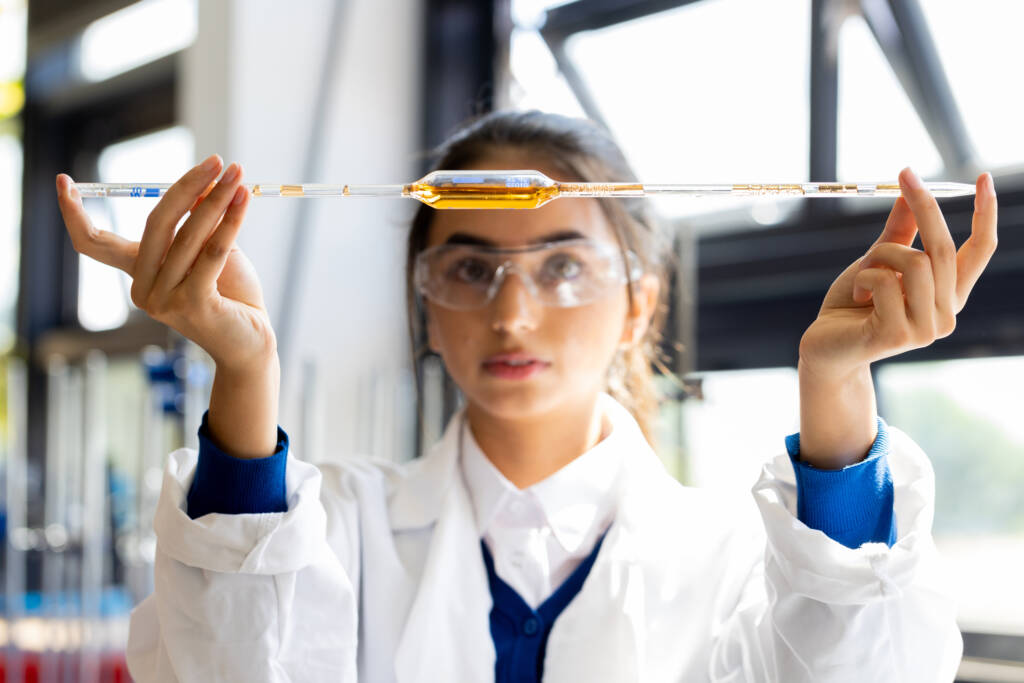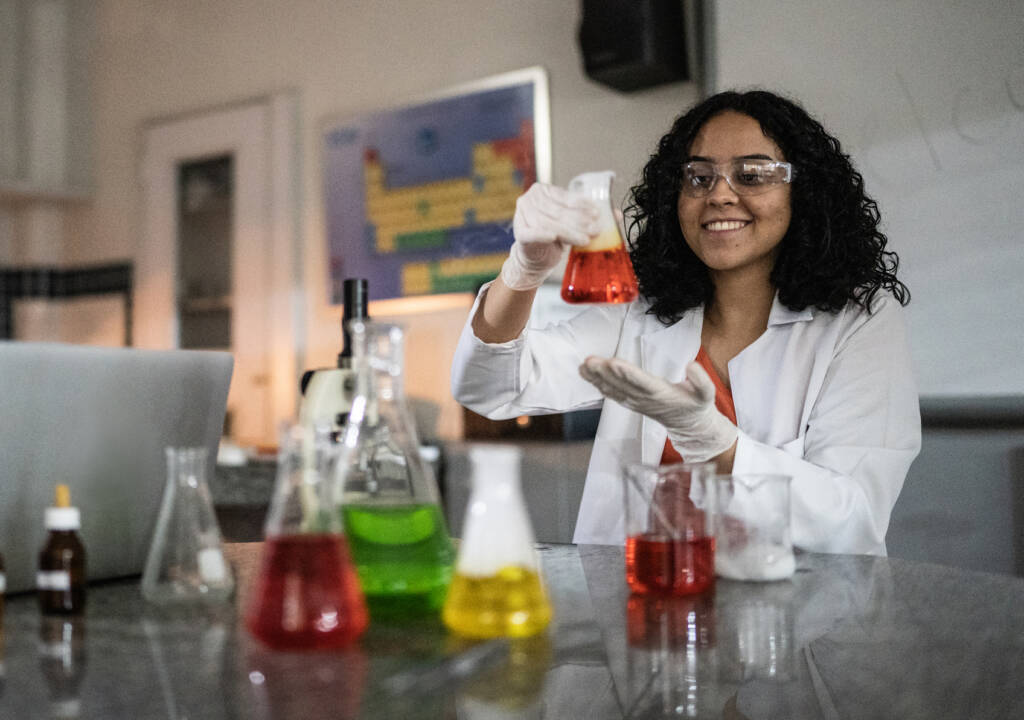Biology/Biology Honors (lab)

The Biology course is a two-segment study that builds on the foundations of life science, scientific practices, and scientific thinking skills. In this course, students will explore the relationships between living things and their environments. Students will develop an understanding of biological concepts through scientific inquiry, investigations, interactive experiences, higher-order thinking, real-world applications, interpreting and collecting data, and virtual and hands-on experiences. The key big ideas of the Biology course are molecular, cellular, heredity, evolution, classification, organisms, populations, and ecosystems. Students will enhance their mastery of biological concepts, which will enable them to make real-world connections and apply their understanding to everyday life.
Major Topics and Concepts
SEGMENT 1
Identify the different types of biology
Explain scientific processes and investigation
Describe each step of the scientific method
Differentiate between repetition and replication
Analyze data and draw conclusion
Describe the structure and function of each macromolecule
Explain why macromolecules are essential for living things
Explain the origins of life on Earth
Describe the properties of water
Differentiate between the different types of cells
Describe each type of microscope
Identify the parts of the microscope
Describe the structure and function of cell organelles
Explain how materials are transported through the cell membrane
Differentiate between passive and active transport
Describe the function of ATP
Explain what happens to ATP when it is broken down
Identify the products of photosynthesis and cellular respiration
Explain how photosynthesis and cellular respiration are interrelated
Describe each phase of the cell cycle
Explain what happens if cell division is not regulated
Describe the function of DNA and RNA
Explain DNA replication
Explain transcription and translation
Describe the different types of mutations
Create a monohybrid and dihybrid cross
Explain how genetics is passed down from parent to offspring
Describe the different types of biotechnology
Explain the benefits and disadvantages of biotechnology
SEGMENT 2
Compare biotic and abiotic factors
Explain the interrelationship between organisms and their environments
Describe the different types of symbiosis
Describe the different biomes in the biosphere
Explain how food chains and trophic levels are related
Analyze energy transfer in food webs
Identify that factors that determine climate
Describe the factors that affect population size
Differentiate between primary and secondary succession
Identify the limiting factors that affect population growth
Explain the human impacts on the environment
Identify the different types of pollution
Describe environmental sustainability
Describe the water and carbon cycle
Identify nonrenewable and renewable environmental resources
Explain the theory of evolution
Compare natural and artificial selection
Recognize the names and relative ages of extinct hominids
Describe classification by cladistic and phylogeny
Describe the characteristics of the three domains
Explain how bacteria cause disease
Describe the characteristics of each kingdom in the classification system
Describe the structure and function of the major plant parts
Identify the parts of the human brain
Describe the flow of blood through the cardiovascular system
Describe the structure and function of the male and female reproductive system
Describe each development during each stage of pregnancy
Summarize how the cells of the immune system respond to pathogens
Competencies
Foundations of Biology
Students will demonstrate an understanding of the foundations of biology by explaining the scientific method, describing the chemistry of life, and describing early Earth.
Cellular Reproduction
Students will demonstrate an understanding of cellular reproduction by explaining cell division, explaining the processes of DNA Replication and Protein Synthesis, describing heredity patterns, and explaining mutation factors.
Origin of Life
Students will demonstrate an understanding of the origin of life by describing the properties of water, describing cell structure and function, describing cellular energy, and explaining cell transport.
Diversity of Organisms
Students will demonstrate an understanding of organisms and diversity by describing microorganisms, describing plant and animal characteristics, explaining the structure and function of human body systems, and describing the human immune system.
Scientific Connections
Students will demonstrate an understanding of scientific connections by describing evidence of evolution, explaining the process of natural selection, and explaining the classification of living organisms.
Earth's Diversity
Students will demonstrate an understanding of Earth’s diversity by describing factors within an ecosystem, explaining levels of organization in ecosystems, and explaining impacts on ecosystems.

